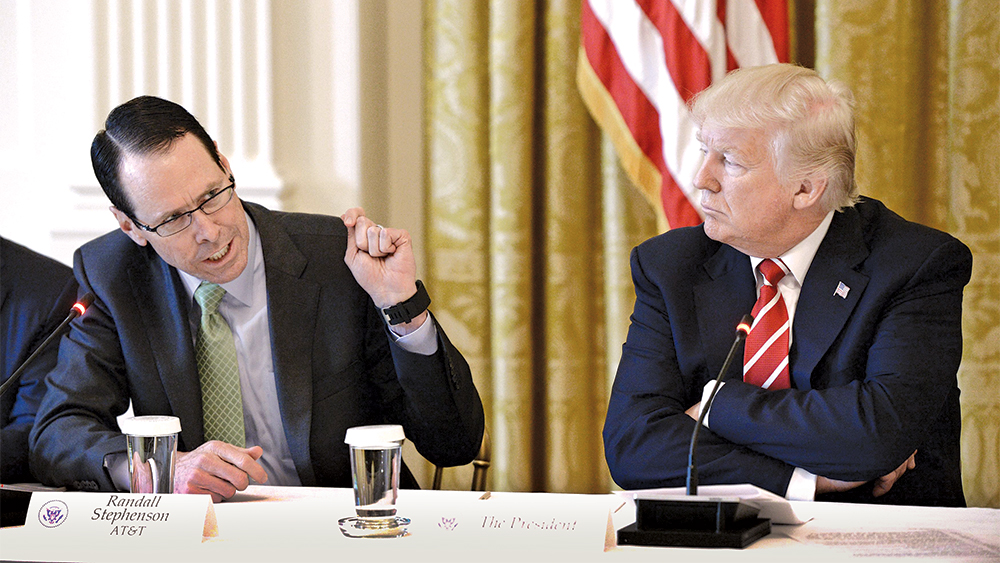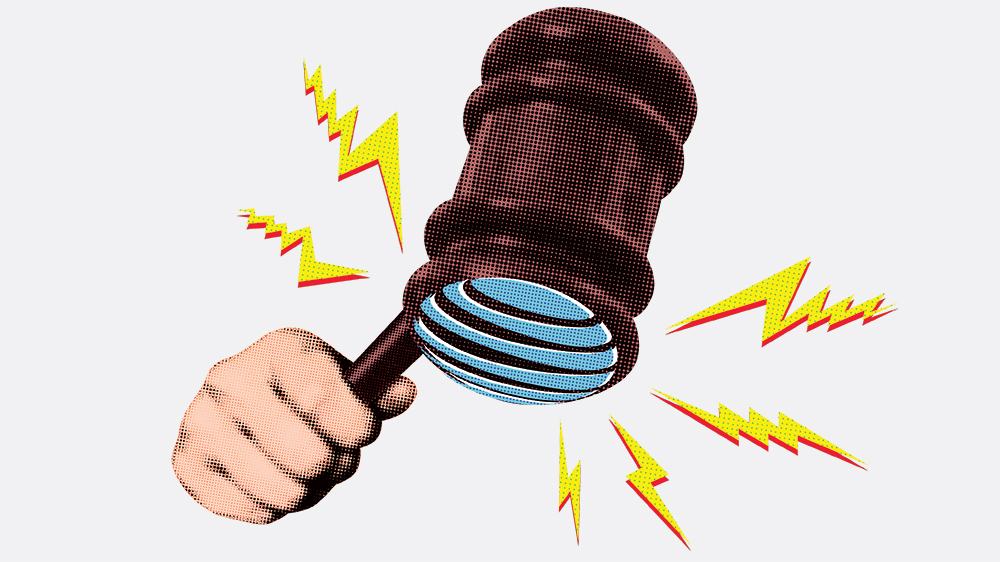A Look at the Various Ways the AT&T-Time Warner Ruling Could Turn Out
By Ted Johnson
LOS ANGELES (Variety.com) – After a six-week trial, June 12 will mark the date when a federal judge in Washington is scheduled to make a huge reveal that could very well shape the future direction of the media, technology and entertainment industries.
Richard J. Leon selected a specific time — 4 p.m. EDT — to announce his decision in U.S. v. Inc. et al, the case that the Justice Department filed to stop the combination of AT&T with Time Warner.
The case undoubtedly will impact future deals, including The Walt Disney Co.’s proposed acquisition of Fox’s assets and Comcast’s potential counteroffer. There also is the ongoing drama over a CBS-Viacom reunion, and speculation that Verizon is looking for a content giant.
“The [Wall Street] consensus is that AT&T has an 80% chance of winning,” says Craig Moffett of research firm MoffettNathanson. “I’m not in the consensus. I think it’s a coin flip. Because of that, I would caution against looking at this as a binary yes-or-no decision. A lot depends not only on what the judge says but how he says it. There will be a lot of important nuance in the verdict itself.”
The decision could go a number of ways:
Scenario: AT&T wins. If Leon were to rule that the merger can proceed as is, it would be a relief to the companies, which had set a deadline of June 21 to complete their deal.
With one of the great uncertainties in the market lifted, it also would surely bolster media-merger mania. Some analysts say that the prediction of an AT&T win is a reason why Comcast is so bullish about putting in a bid for Fox assets, as such a transaction would otherwise raise some of the same questions that concerned the in its review of the AT&T- deal.
Moffett predicts that if AT&T wins, Comcast will formalize its offer for Fox’s assets. If the judge places no conditions on the AT&T-Time Warner merger, he says, “You could see a real wave of verticalization, where Verizon and Charter look at whether they need to own their own media assets.”
You could see a real wave of verticalization, where Verizon and Charter look at whether they need to own their own media assets.”
Craig Moffett, MoffettNathanson
Analyst John Hodulik of UBS notes that if the decision is broadly written, giving weight to the argument that traditional media companies are losing market power as viewers migrate to online video, “that would be a green light for more rapid consolidation in the media and telco space.”
Scenario: AT&T wins, but the Justice Department appeals. There has been some sense that the DOJ is seriously considering an appeal, should it lose, based on what has been said in court filings and in talks with sources close to the case. Much will probably depend on how definitive Leon’s ruling is.
Does that mean further delay for AT&T-Time Warner?
Hodulik says he thinks “they close the deal right away, [even if] the DOJ asks for an appeal or stay. AT&T has said that within a matter of days they’re going to move ahead.” He also believes a deal would provide a lift to AT&T stock — with the Time Warner acquisition being 7% to 8% accretive to AT&T earnings per share.
If there is an appeal and a judge grants a stay to prevent the merger from going forward, attention will be placed on
what AT&T and Time Warner say about their continued commitment to the combination.
“If there’s a stay, this could wind up in legal limbo for several months,” says Barton Crockett, senior analyst at B. Riley FBR. AT&T and Time Warner “could still try to merge, and the DOJ could sue. It’s 100% dependent on which way the judge goes, not just in the decision but the setup for an appeal.”
He adds that an AT&T win could convince tech giants like Google, Facebook, Apple and Amazon to make moves on content conglomerates.
There also is the possibility that Leon allows the transaction but with conditions, namely that AT&T agree to some kind of arbitration in carriage disputes with distribution rivals.
“If the government loses, there might be more boldness on the part of dealmakers to move forward, but the government isn’t going to jettison all of its concerns about vertical mergers,” says Diana Moss, president of the American Antitrust Institute.
Scenario: AT&T loses. AT&T and Time Warner could appeal, but there would be real questions about whether they would further delay their transaction.
Some academics argue that a decision in favor of the DOJ would suggest a major shift in the way vertically integrated mergers are treated. Larry Downes, senior industry and innovation fellow at Georgetown University, says, “It will signal, perhaps unintentionally, a radical change in antitrust law, casting into doubt most if not all potential deals across a wide range of industries.”
| No matter the court’s decision, it’s likely the president will comment. Here, AT&T chief Randall Stephenson speaks during a Washington, D.C., event last June. REX/Shutterstock |
The Justice Department, however, says that disallowing the combination would merely be a shift away from what has been a past solution for problematic mergers: imposing “behavioral” conditions. Makan Delrahim, the DOJ’s antitrust chief, has instead been an advocate of requiring “structural” conditions in such situations, in which companies have to sell off business entities to alleviate anticompetitive conduct.
Amy Yong, equity research analyst at Macquarie Capital, says that in the event of an AT&T loss, Comcast might target Time Warner assets. “A lot of people are going to look at them,” she says. “John Malone has talked a lot about the ‘free radicals,’ Lionsgate being one of them. All of these content assets that are out there are strategic to someone.”
Scenario: A settlement. Don’t count it out, even after the lengthy trial and perhaps millions spent in litigation. Delrahim confirmed that AT&T’s lead attorney, Daniel Petrocelli, called him right before the trial began, and the subject of a settlement was broached but didn’t go anywhere.
The big question is just what such a settlement would look like: The Justice Department said that it gave AT&T-Time Warner three options before the lawsuit was filed: sell off DirecTV, divest Turner networks or structure a deal where AT&T owns a minority stake in Turner. The companies apparently rejected those ideas as untenable, but what about other types of asset sales or a spinoff? Antitrust experts say that a settlement is always a possibility in the drive for corporate certainty.
Scenario: Trump chimes in. Is there even much doubt that he will say something?
And how will Trump respond to future transactions? The White House expressed some support for Disney’s plans to combine with Fox when the deal was announced in December, and Trump chatted about it with Rupert Murdoch. Lately, though, the president has taken aim at Disney CEO Bob Iger, claiming a double standard in how the company responded to Roseanne Barr’s racist tweet versus what was said about Trump by figures on ABC and ESPN. AT&T’s Randall Stephenson said at a Boston College event in February that Trump’s opposition to their deal — and his hatred of CNN — was an “elephant in the room.”


